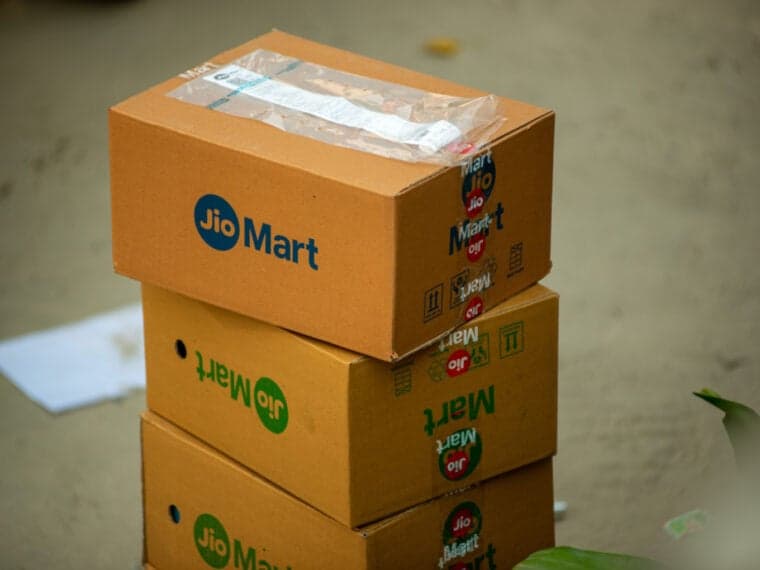
The JioMart Express app has also been taken down from the Google Play Store, while the website is inaccessible
JioMart Express was still in its pilot stage, having been launched in Navi Mumbai with plans to expand it to 200 cities
Reliance’s moving away from quick commerce comes at a time when India’s startups have come under increased scrutiny
Reliance Retail’s JioMart has reportedly stopped the operations of JioMart Express, the quick commerce delivery arm of JioMart launched last March.
The JioMart Express app has also been taken down from the Google Play Store, while the website is inaccessible. However, the app is visible on Google Play’s website on PC. While functioning, JioMart Express offered 90-minute delivery for groceries.
However, the users are now being prompted to try JioMart on WhatsApp, where deliveries take between a few hours and a day. The feature comes as part of a broader partnership between Meta and Reliance’s Jio Platforms, which saw the Facebook parent invest $5.7 Bn in the telecom and internet giant.
It is prudent to note that JioMart Express was still in its pilot stage, having been launched in Navi Mumbai with plans to expand it to 200 cities, per ET report.
A spokesperson for Reliance Retail confirmed the development to the publication saying JioMart Express was only a pilot with select users.
“Reliance Retail’s digital commerce in grocery continues to be multifaceted. A high-reach new commerce model with kirana stores, JioMart is currently present in over 350 towns, JioMart on WhatsApp and MilkBasket subscription services in over 35 towns are all initiatives that are being expanded to cater to the diverse consumer requirements,” the company said in a statement.
India’s Quick Commerce On A Shaky Footing
Reliance’s moving away from the quick commerce business model comes at a time when India’s quick commerce startups have come under increased scrutiny by investors due to the cash-intensive nature of the business.
Players including Swiggy’s Instamart, Zomato’s Blinkit, Zepto and BigBasket’s BB Now are incorporating a few measures to make it an easy ride. For example, these players are looking to increase average order value and trying to get users to order with longer delivery times to cut costs.
The costs add up in a quick commerce order. Due to the fast-paced nature of order processing and the fact that one delivery executive can only carry one order at a time to fulfil timelines, it leads to high cash burn.
These players have also stopped advertising specific delivery times since an increased time allows many things to be done simultaneously, reducing per-order costs.
One of the prime examples of this came from the recent results by Zomato.
Blinkit, the foodtech’s quick delivery service, saw its average value shrink to INR 553 in the third quarter of FY23 from INR 568 a quarter ago. However, key metrics including total orders, average monthly transacting customers and average gross order value per day per dark store increased sequentially.
At the same time, Blinkit’s adjusted EBITDA loss decreased from INR 259 Cr in Q2FY23 to INR 227 Cr a quarter ago.
Be that as it may, Blinkit CEO Albinder Dhindsa said in Zomato’s earnings note, “The slight downward pressure on AOVs (average order value) might be a result of the slowdown where customers are preferring to buy smaller packs instead of larger ones.”
He also added that the last quarter was the highest ever in terms of new and returning customers, as Blinkit plans to increase its dark store count by 30-40% in the next 12 months.




 Fintech
Fintech Travel Tech
Travel Tech Electric Vehicle
Electric Vehicle Health Tech
Health Tech Edtech
Edtech IT
IT Logistics
Logistics Retail
Retail Ecommerce
Ecommerce Startup Ecosystem
Startup Ecosystem Enterprise Tech
Enterprise Tech Clean Tech
Clean Tech Consumer Internet
Consumer Internet Agritech
Agritech































